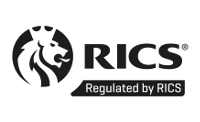Schedules of Dilapidations are often something of a shock to many tenants who are unaware of their liabilities under their lease. At the point of agreeing a lease, for many, the financial implications at the end of that lease are generally not considered and tenants often find that the Schedules of Dilapidations at the lease end are seemingly unfair. It is a common situation to find that Schedules of Dilapidations include defects that existed prior to the lease commencement however if a tenant did not take professional advice on the condition of the building, or limit their repairing obligations formally at the lease commencement, then unfortunately they can find themselves liable for the repairs that predated their lease.
It is always recommended to instruct a Building Survey prior to agreeing a lease to identify the nature and condition of the building so the prospective tenant has an understanding of the issues and condition of the property. It is advisable to instruct a Building Survey to be undertaken even if the lease is only an internal repairing and insuring one as in most situations whilst the tenant may only be directly liable for the internal areas of their demise they are liable for a share of the service charge which covers the external areas and common parts. In the event major external works are required such as repairs or replacement of roof coverings or external repairs and redecoration then the costs, or share of them, can be significant.
It is always advisable that any prospective tenant looking to take a lease protects their interest. In addition to instructing a Building Survey, which may highlight issues with the building, it is imperative that those issues noted are raised and formally recorded within the lease clearly stating that the lessee is not liable for them. In the event the lessee wants to limit their liability a Schedule of Condition should be prepared to record the condition of the demise at the lease commencement and this would need to be agreed with the landlord and referenced in the lease.
It is common for prospective lessees to dismiss the need for a Building Survey or professional advice on the nature of the building they are signing up for on the basis that the fees are high and unnecessary. It is however usual that the advice at this stage pays dividends at the lease end if the lessee has limited their liability and has a good appreciation of the dilapidations they are likely to face which they can plan and be prepared for.
Tim Greenwood and Associates offer a full range of advice to lessees on their dilapidations’ liabilities in accordance with their lease.
